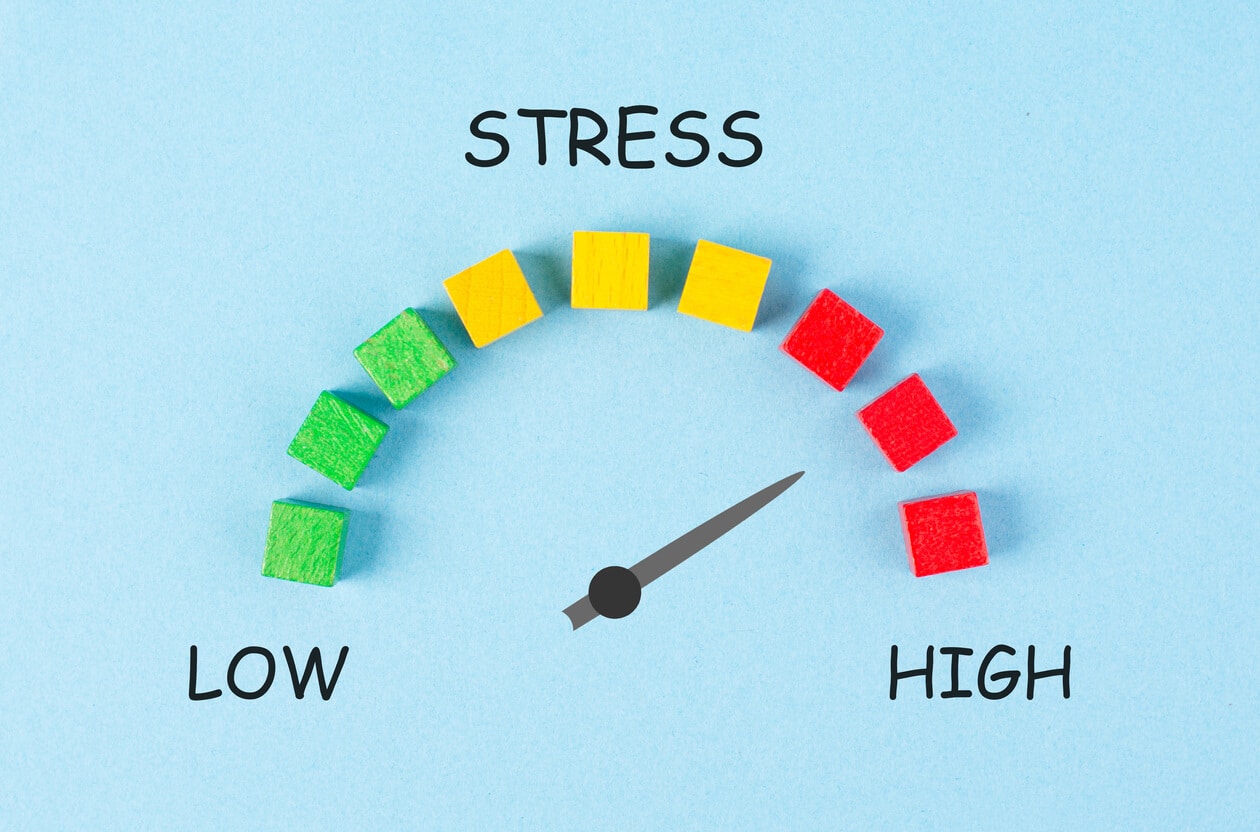
Life is busy. We all face challenges, changes, and sometimes, really tough days. It’s normal to feel the weight of these moments as stress.
But sometimes, the impact of stress on adult anxiety can make it much more difficult to handle.
Let’s talk about what stress is, its connection to anxiety, and how to manage it.
What is Stress?
Stress is like an alarm bell. It’s our body’s way of responding to any demand or threat.
Imagine you have a big test or a job interview. Your heart might race, your palms might get sweaty, and you may feel a bit jittery.
That’s stress doing its thing. But stress isn’t always bad. Sometimes it can help us focus or act quickly in urgent situations.
There are two main types of stress. Short-term stress happens quickly and then goes away, like when you’re nervous before giving a presentation but feel okay after it’s done.
Then there’s chronic stress. This type of stress sticks around for a long time. It’s like a heavy backpack that you can’t put down.
Chronic stress can be caused by long-term problems like having trouble at work or dealing with a tough health problem. It can also have a major impact on anxiety.
The Connection Between Stress & Anxiety
Stress and anxiety are like close cousins. They share some similarities, but they’re not exactly the same. While stress is a response to a challenge or a situation, anxiety is a reaction to that stress.
If stress is the alarm, anxiety is the feeling of worry, fear, or unease that lingers even after the bell has stopped ringing.
Imagine your mind as a cup of water. Every time you feel stressed, a drop of water is added. A few drops won’t make the cup overflow, but if stress keeps adding up and we don’t find ways to let some of it out, the water can spill over.
This “overflow” is what we often recognize as anxiety.
Research tells us that if we don’t handle our stress well, it can lead to anxiety problems. The more often we feel stressed, the more our body gets used to being in that “on-edge” state. This makes us feel anxious more often.
It’s vital to understand both of these feelings so we can find ways to handle them and live our best lives.
How to Manage Stress
1. Mindfulness and Meditation
Imagine sitting still, breathing deeply, and feeling the present moment. That’s mindfulness.
Meditation, on the other hand, is like giving your brain a mini-vacation. It’s a time to relax and let go of any busy thoughts.
By practicing these, we can train our minds to stay calm and focused. You don’t need any fancy tools – just a quiet spot and a few minutes a day.
2. Physical Activity
Get your body moving. Whether it’s dancing in your room, walking the dog, or playing a sport, moving our bodies helps release built-up stress.
When we’re active, our body releases chemicals called endorphins. Think of them as natural mood boosters. It’s a great way to distract from worries and have some fun!
3. Balanced Diet and Sleep
You’ve probably heard the saying, “You are what you eat.”
Eating healthy foods like fruits, veggies, and whole grains can make us feel better physically and mentally.
And don’t forget about sleep. A good night’s rest is like recharging a battery. Without enough sleep, it’s harder to handle stress. Aim for those 7-9 hours each night.
4. Time Management
Ever feel like there aren’t enough hours in the day? That’s where planning comes in.
Use to-do lists or calendars to organize tasks. Break big jobs into smaller steps, and keep in mind that it’s okay to take breaks.
By planning ahead, we can avoid last-minute stress.
5. Establish Boundaries
It’s okay to say no sometimes. If you’re feeling overwhelmed, it might be time to set some limits. This could mean turning off notifications on your phone or telling family and friends you need some “me-time.”
By setting boundaries, we make sure we have time for rest and self-care.
When to Get Help for Anxiety
It’s normal to feel stressed or anxious now and then. But if those feelings don’t go away or if they start to interfere with your daily life, it’s time to reach out.
Signs like constant worry, trouble sleeping, or feeling fearful often mean it’s time to talk to someone. This could be a trusted friend, family member, or professional.
Asking for help is a sign of strength, not weakness.
Get Professional Support for Your Anxiety
By understanding our feelings, learning how to handle stress, and knowing when to seek help, we can navigate life’s struggles with confidence. You’re never alone on this journey.
If you or someone you love is struggling with anxiety, contact Aliso Ridge Behavioral Health or Anaheim Community Hospital today and get the help you deserve.
